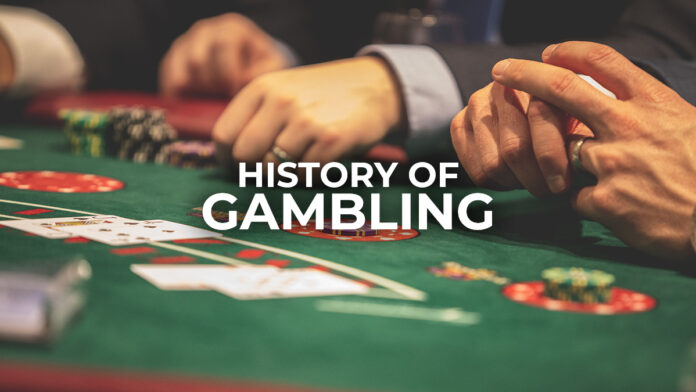
Regardless of who you are and where you grew up, gambling is something society has enjoyed for years. The intrigue alone is enough to push someone into giving it a shot, even if it’s for something as simple as a scratch card. You could win the grand prize or a small portion of what you spent back. However, more often than none, Lady Luck has other plans, and you walk away with nothing.
On a few rare occasions, you may have been lucky enough to earn some extra spending money and go on to developing an interest in the sport – yes, it’s considered a sport by many.
The reasons for gambling seem pretty self-explanatory – winning big. That drive-in itself makes it a hobby that can very easily take over your life if you don’t stay level-headed. The stakes can become increasingly higher and more dangerous in the blink of an eye. Please consult the problem gambling hotline if you think that you may have a gambling addiction.
Where Did It Start?
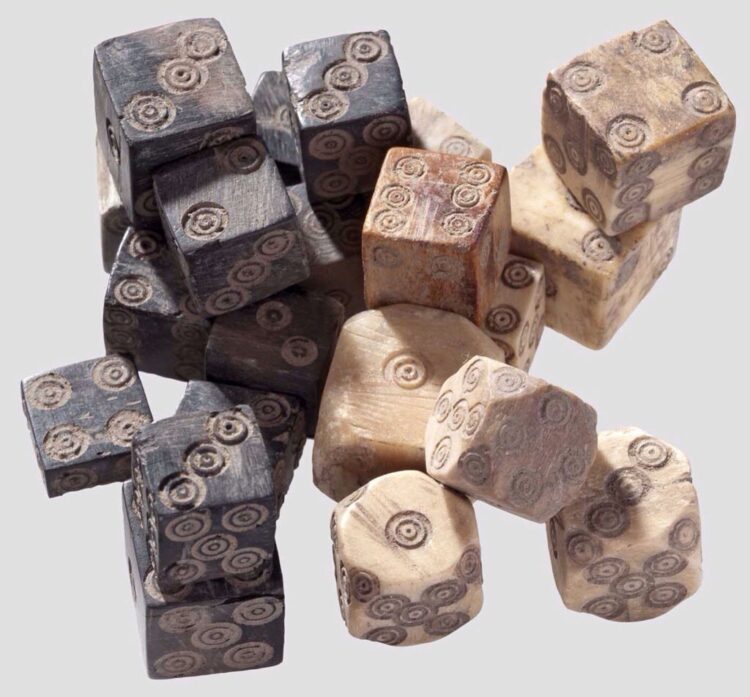
The invention of dice dates back as far as 3000 BC in ancient Egypt – artifacts have been found to support this – while Sophocles wrote about the invention in 500 BC. This leads us to believe that gambling existed long before we initially realized.
Early evidence of gambling has also been discovered in Ancient China. Historians discovered titles dating back to 2300 BC and believe that it was an early form of lottery. “The drawing of wood” has been referenced in the “Chinese Book of Songs”, which is said to be related to these tiles and involves a game of chance.
Keno, a lottery-type game, also has Chinese origins and was referred to as “baige piao”. Evidence has been found of this dating back to 200 BC.
In Ancient Rome, gambling was forbidden and there were consequences for individuals caught in the act. To avoid prosecution, the Romans started to gamble with chips or tokens instead of money.
The invention of dice dates back as far as 3000 BC in ancient Egypt – artifacts have been found to support this – while Sophocles wrote about the invention in 500 BC. This leads us to believe that gambling existed long before we initially realized.
Card Play
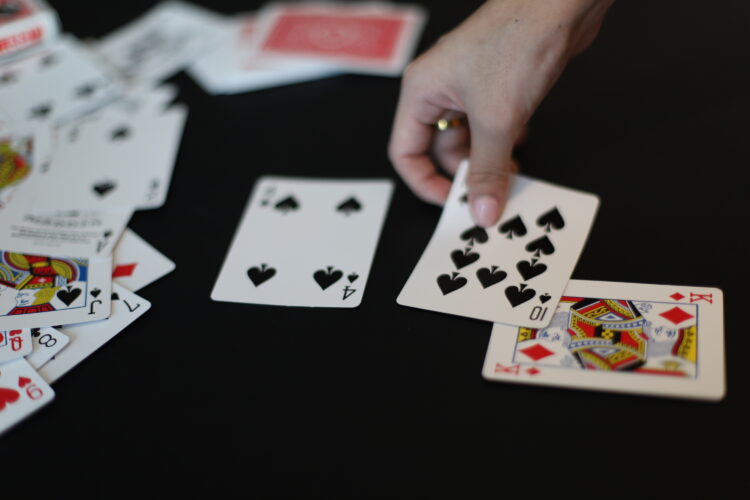
Researchers believe that playing cards came about in China during the 9th century. Both the game and the potential reward. Many believe that Chinese dominoes came about in the form of paper cards.
During the 6th century, the Koreans made use of cards made of paper and silk, which is said to have played a role in developing paper forms of currency.
The oldest card game still in existence is Baccarat. This two-player game is said to originate from Italy and France and dates back to the 1400s. While it still exists, it has evolved since its initial inception and based on a version adapted by the Cubans.
A casino favorite, of course, is Blackjack. In the 17th century, the French developed a card game called vingt-et-un which translates to 21. In the beginning, the dealer had the ability to double. Since then, the rules have changed giving the dealer different abilities depending on the version that you choose to play.
Blackjack received its name through promotional material in the United States and to appeal to more clientele, 10 to 1 odds were paid to players who won with a jack of clubs or spades with an ace of spades. This didn’t last long as casinos started to lose money.
Establishing Casinos
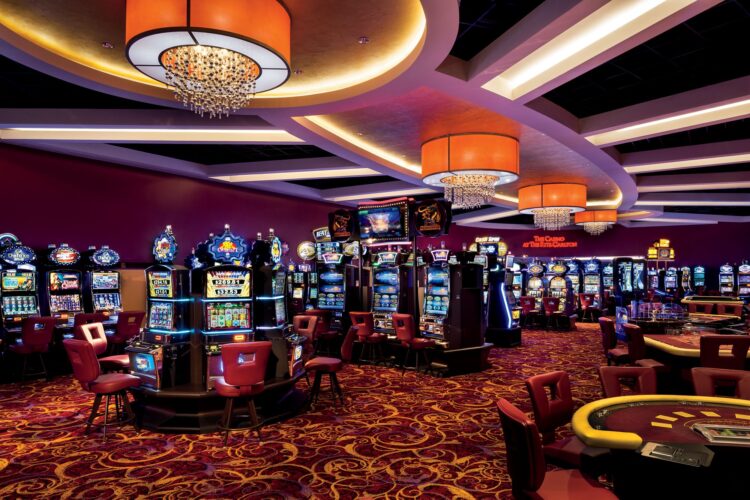
Gambling houses, the first form of casinos, is said to have appeared in the 17th century. In Venice, the Ridotto was established in 1638 to provide a more structured gambling environment, especially during the carnival season. Biribi was a popular game and involved a player placing a bet with 70 potential outcomes The banker would then draw a number from a bag and the person who bet on that number would win the prize.
Another popular game was basetta a gib rummy, poker and blackjack hybrid. Players stood a chance to win 60 times their initial bet.
A Rocky Start
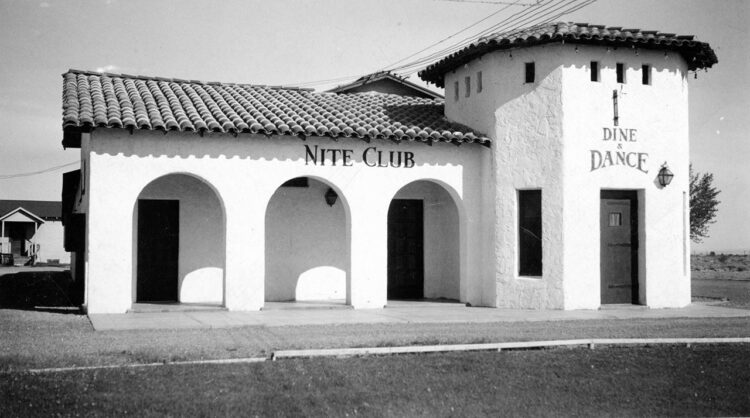
The first settlers in the United States banned gambling – although this proved to be difficult to enforce in a similar fashion to alcohol prohibition. The market crash in the 1920s resulted in both activities being legalized.
The very first casino ever built was the Pair-o-Dice Club on the formerly desolate stretch of land, Highway 91. This piece of land would eventually become known as Las Vegas Boulevard. The first resort built was the El Rancho which opened in 1941 but unfortunately burnt down in 1960.
The success of these casinos attracted the likes of many famous criminals that eventually opened their own establishments.
In more recent times, this strip has become home to many luxurious resorts, gourmet dining, spas, nightclubs and even condos.
Going Digital

In the 1990s Microgaming began to develop software that would give rise to online gambling. The company now supplies content to some of the biggest online casinos that include 600 variations of poker, slots, blackjack and roulette and over 1200 games in total. If you want to check out just some of what’s on offer, click this link for more information.
By the mid-1990s the first casino had gone online, and by 2010 mobile casinos were fast becoming the norm. The evolution of the Internet and advancements in technology has spurred on the growth of digital gaming, and even smartwatch casino games can now be enjoyed. VR gambling has yet to take off, but there have been a few Virtual Reality games developed for release, as well as gambling action in video games such as Red Dead Redemption.
The future of online gambling seems to be quite promising, more so now as the world continues to practice social distancing. This age-old practice shows no signs of slowing down and will more than likely exist for generations to come.











